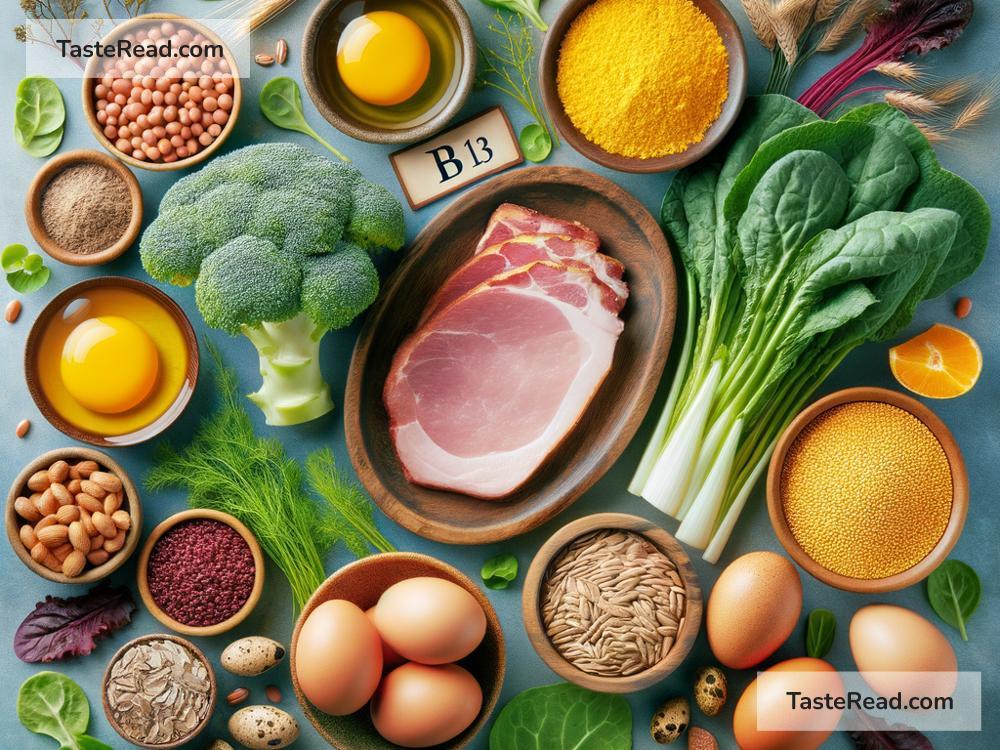The Role of Vitamin B130 in Metabolic Health
Have you ever heard of Vitamin B130? If you are scratching your head, don’t worry—Vitamin B130 is not real, but this article will demonstrate how critical other members of the B vitamin family are to metabolic health. Because Vitamin B130 doesn’t exist, let’s use its concept to explore what a hypothetical vitamin like it might do for your body and why understanding metabolic health is so important.
What Is Metabolic Health?
To understand the impact of a vitamin, we first need to know what metabolic health means. Metabolic health is your body’s ability to turn food into energy efficiently. When your metabolism works well, your body can process nutrients like carbs, proteins, and fats effectively. This leads to balanced blood sugar, healthy cholesterol levels, and overall well-being.
Unfortunately, poor metabolic health has become more common in recent years. Conditions like obesity, type 2 diabetes, and heart disease are often linked to sluggish and poorly controlled metabolism. For this reason, nutrients that assist in metabolic health—like vitamins in the B complex family—deserve more attention.
The Magic of B Vitamins for Your Metabolism
The B vitamins are a group of eight essential nutrients that play key roles in keeping your body’s metabolism strong. They help your body perform critical functions, such as converting food into energy, building red blood cells, and supporting nerve health. Examples include:
- Vitamin B1 (Thiamine): Helps your body convert carbohydrates into energy.
- Vitamin B6 (Pyridoxine): Helps regulate metabolism and breaks down proteins and amino acids.
- Vitamin B12 (Cobalamin): Essential for red blood cell production and neurological function.
So what would Vitamin B130 do if it existed? Based on the functions of other B vitamins, we could imagine it as a “super nutrient” that supports every aspect of metabolic health. Let’s dive deeper into this idea.
Imagining Vitamin B130
If Vitamin B130 were real, here’s a guess at what it might do. It could be the ultimate multitasking vitamin, helping your body balance blood sugar, burn fat efficiently, and maintain energy levels throughout the day. This imaginary vitamin might work by optimizing every major metabolic pathway, which would come in handy for people with metabolic disorders.
Here’s how Vitamin B130 might tackle metabolic health issues:
-
Improving Insulin Sensitivity: Insulin is a hormone that helps regulate blood sugar levels. When your body doesn’t respond well to insulin, sugar stays in your blood instead of being used for energy. This can lead to diabetes over time. Vitamin B130 might boost insulin sensitivity, making it easier for your body to use glucose as fuel.
-
Increasing Energy Production: Every cell in your body has tiny energy-producing units called mitochondria. When your metabolism is slow, these mitochondria don’t function at their best. Vitamin B130 might support mitochondrial health, helping your cells create energy more efficiently and keeping you feeling lively all day long.
-
Encouraging Fat Breakdown: Struggling to lose weight even when eating healthy and exercising? This could be due to a sluggish fat-burning process. Vitamin B130 might kickstart fat metabolism, allowing your body to break down and use stored fat for energy.
-
Supporting Muscle Strength: Healthy metabolism isn’t just about burning calories; it’s also important for keeping muscles strong and functional. Vitamin B130 might help repair and build muscle tissue, especially after exercise.
What Can You Do Now?
Since Vitamin B130 doesn’t exist, you can focus on getting plenty of real vitamins, especially B vitamins, to support your metabolic health. Many foods naturally contain B vitamins, so you can eat a balanced diet to fuel your body with these beneficial nutrients. Here are some examples:
- Whole grains: Foods like brown rice, oats, and whole-grain bread are rich in vitamins like B1 and B2.
- Leafy greens: Spinach, kale, and other vegetables offer Vitamin B9 (folate).
- Lean meats: Chicken, turkey, fish, and beef contain Vitamin B6 and B12.
- Eggs: One of the most versatile foods, eggs are full of essential B vitamins.
- Dairy: Milk, yogurt, and cheese contain riboflavin (Vitamin B2).
If you think your metabolism needs a boost, consider adding more of these B vitamin-rich foods to your plate.
Lifestyle Choices Matter
Along with eating well, focus on living an active and healthy lifestyle. Regular exercise strengthens your metabolism and helps your body efficiently use the nutrients in your food. Getting enough sleep also matters; when you’re sleep-deprived, your metabolism slows down, making it harder for your body to function properly.
If you’re concerned about your metabolic health, you may want to talk to your doctor. Together, you can discuss whether supplements (like actual B vitamins—not Vitamin B130!) might be necessary based on your individual needs.
Final Thoughts
While Vitamin B130 may be fictional, the concept behind it highlights how important nutrients are for optimizing metabolic health. The actual B vitamins are crucial for helping your body process food into energy and stay healthy. Whether it’s supporting insulin sensitivity, muscle function, or energy production, these vitamins are the cornerstones of a well-functioning metabolism.
To stay strong and energized, focus on nourishing your body with real B vitamins from nutrient-rich foods. Along with other healthy habits—like exercise and good sleep—you can take steps to maintain a healthy metabolism and improve your overall well-being.


